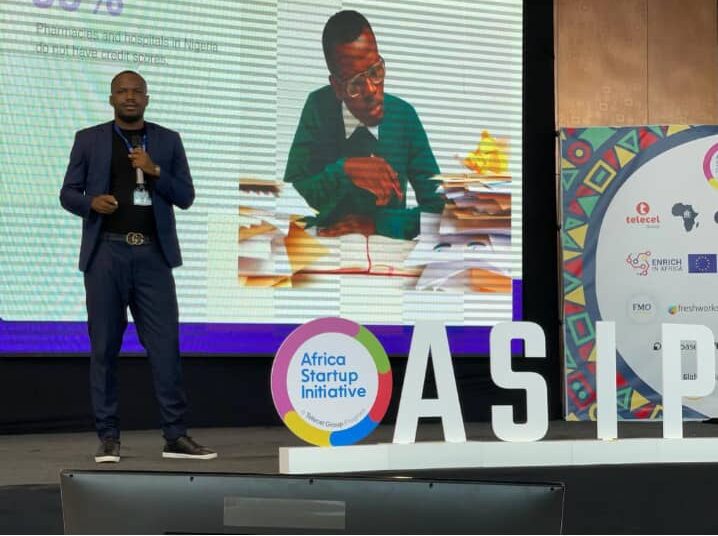The co-founder & CEO – of PharmaServ Ltd Emeka Anyaorah, highlights that Pharmaserv software is changing the way operations is handled in Africa’s Pharmaceutical Industry.
Tell us about PharmaServ, the vision behind the concept, and the relevance of your services to the Nigerian Pharmaceutical industry.
I would like to start with the problem we are tackling. Proven data has shown that more than ten per cent of pharmaceutical sales are lost to bad debts and malpractices by sales professionals, this costs the industry over $2 billion annually in Africa. Secondly, sales and distribution practices are heavily manual which gives room for errors.
At PharmaServ, We make cloud software, data, and professional services for our customers, and our customers are people who make medicines, people who import them, and people who distribute them, and we help them bring those medicines to the market (ultimately to the right patients).
We are a multi-line product company, and our flagship product is the PharmaServ Field Service App which essentially, is a sales workflow-support software that manages sales and medical detailing operations as well as front- and back-office activities of sales teams and sales managers in low-resource settings. With PharmaServ, common data architecture, sales, medical, accounting, and marketing teams can work together in a more coordinated, customer-centric, and productive way
How did you leverage technology through pharmaceutical marketing driven in Nigeria?
”My opinion is that marketing practice here in Nigeria is pretty much very traditional – there are no prescribed standards across different tiers of businesses, and nobody knows what comes from who, and where. Yes, on the individual level.”
We have the best talents to carry out most of these activities but the lack of basic infrastructure is inhibiting the opportunities the market presents. This also provides an enormous commercial opportunity for digital infrastructure providers like us to innovate within this vertical, and build tools that will supercharge sales and marketing efforts across the pharmaceutical value chain.
”It is also worth to note that, that there is an emerging generation that will be sitting in key positions in most of these traditional companies in the next five to fifteen years time. These are people who spend most of their time surfing the Internet or who grew up with cell phones and e-mail.”
”So the new winners in the market will be technology-enabled businesses, and I will keep on saying that “the market is not what it is, the market is what it can be”.
Are you in partnership with the industry players?
Yes, we have several partners in both the Nigeria market and other West African markets. We recently secured a pilot program with a leading pharmaceutical company in the francophone West African market.
That also enabled us to internationalize our software with multiple languages and currencies. We have a strong African Mandate! By default, building in low-income countries comes with an avalanche of challenges. And one of the most prominent ones is “LACK OF TRUST” towards startups like us. Especially when you are selling to mid-sized and big companies it can be super difficult even after getting a buy-in from the top executive, you have to still convince the management team.
What are some of the challenges facing the use of technology in sales management especially in Nigeria?
For the past few years, we have seen a rise in the adoption of software tools across companies of different sizes. Companies are adopting low and high-tech solutions to streamline their business processes and improve productivity.
”However, adoption in the pharma sector is relatively slow when compared to other industries like the financial service sector, this can be attributed to the use of legacy systems and heavily manual processes in the pharma industry. Companies that use commercial technology tools like PharmaServ Field Service for pharmacy sales have seen a rapid reduction in their administrative burden which has enabled its teams to easily share best practices between territories and markets. ”
”Some other benefits are their reps have reduced the time it takes to negotiate orders, which speeds up the processing and gets drugs to pharmacies more quickly. They can now optimize the order price more effectively as discount calculations are already pre-loaded into the system, making the complete order process from capture to delivery seamless and efficient.”
We’ve got the edge. Get real-time reports, breaking scoops, and exclusive angles delivered straight to your phone. Don’t settle for stale news. Join LEADERSHIP NEWS on WhatsApp for 24/7 updates →
Join Our WhatsApp Channel










